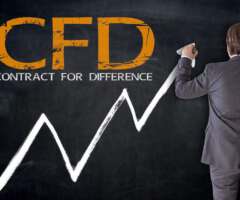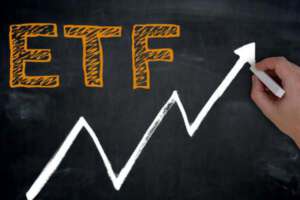Trading
What is trading?
Trading is a special form of trading in which the focus is less on long-term investment objectives, but above all on profits from short-term price movements. By buying and selling various investment products, such as shares, but also commodities, currencies or bonds, the trader tries to achieve a return. In order to maximize the returns of minimal price movements, traders often use financial leverage. This means that borrowed capital amplifies the effect of one’s own capital. When trading, different methods and strategies can be used, which usually require a lot of experience, technical knowledge and also a lot of time.
Types of traders
A distinction is made between private traders (retail traders) and institutional traders.
Institutional traders are legal organizations such as banks, insurance companies, hedge funds or, more generally, companies. These types of traders can rely on a high trading volume, which often gives them access to better prices in the market.
What trading styles are there?
There are different types of trading styles that relate to the duration of trades, the time frame, and the type of analysis used to make decisions. Some of the most common trading styles are:
- Day trading: This style refers to trading financial instruments within a single trading day, where all positions are closed at the end of the day.
- Swing trading: This style refers to trading financial instruments within several days or weeks, where positions are held longer than day trading.
Position trading: This style refers to trading financial instruments over an extended period of several months or even years.
Scalping: This style refers to trading financial instruments in very short periods of time, usually less than a minute, with the aim of making small profits from short-term market fluctuations.
High-frequency trading (HFT): This style refers to trading financial instruments at very high speed and frequency, usually using algorithms and computer programs.
Algorithmic Trading: This style refers to trading financial instruments, where decisions are made based on algorithms and mathematical models.
Value trading: This style refers to the use of fundamental analysis to identify companies with a low price-to-book ratio and bet that their value will increase in the future.
News trading: This style refers to the use of news and fundamental data to make decisions about buying or selling financial instruments.
There are many other trading styles and it is important to note that each trader can develop and customize their own style. It is also important to note that no single style is suitable for all market conditions and traders.
Which financial products are traded?
Can you make a living from trading?
It is possible to make a living from trading, but it is not easy and requires a lot of time, training, discipline and hard work. To be successful, traders must have and implement a solid trading strategy, as well as good risk management and discipline in adhering to their rules and objectives. They also need to understand the markets and financial instruments in which they trade and constantly learn and educate themselves.
It is important to emphasize that trading is a risky endeavor and it is very important to have realistic risk management in place to limit losses. Many traders fail because they act unwisely or are unable to keep their emotions in check. It is also important to note that there is no guarantee of profits in trading.
There are many successful traders who make their living through trading, but it is important to remember that it is very difficult and it requires hard work and perseverance. It is also advisable to have a good education and experience before taking the step to the life of trading.
You might also be interested in?

Blog
Season Trader Blog






